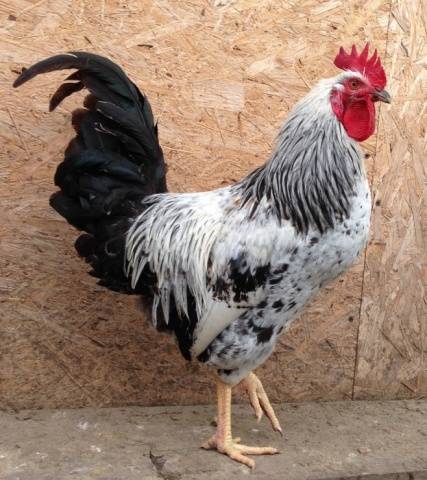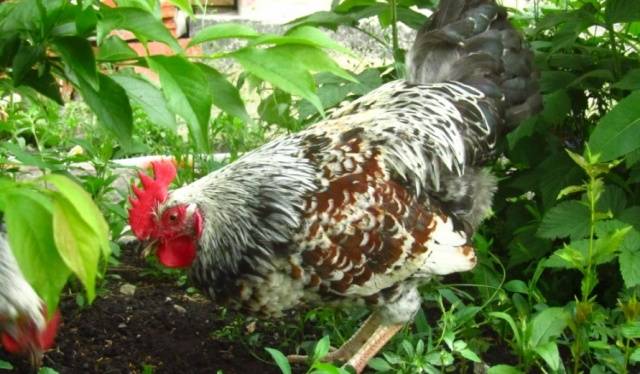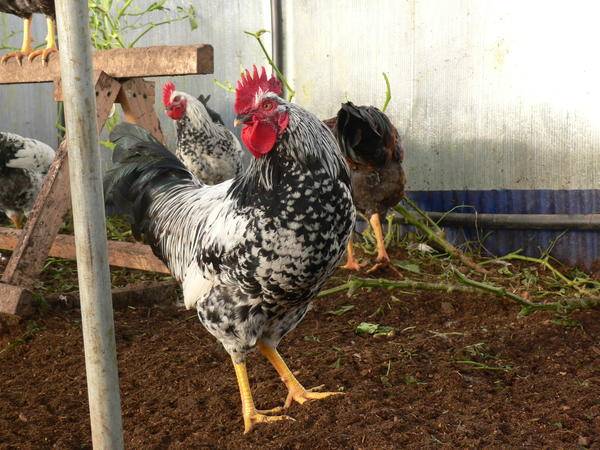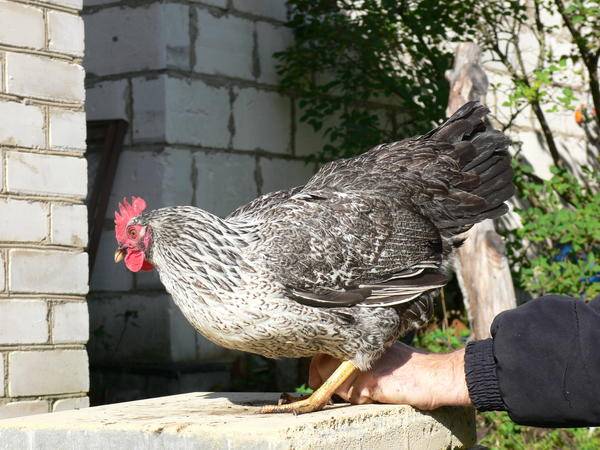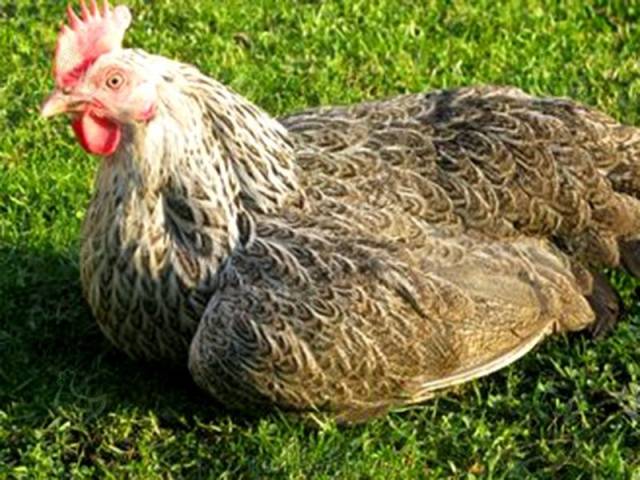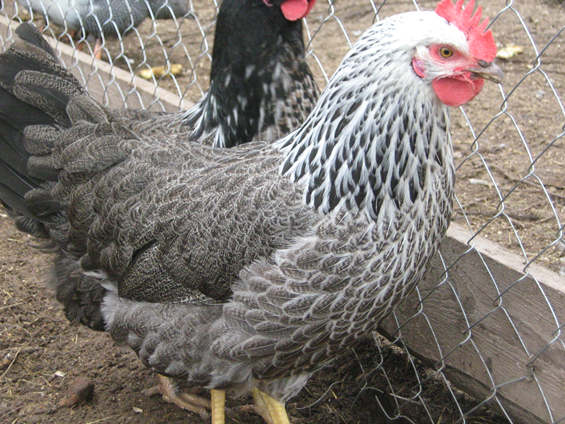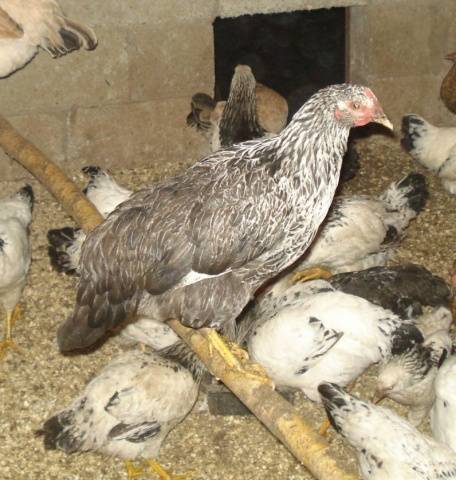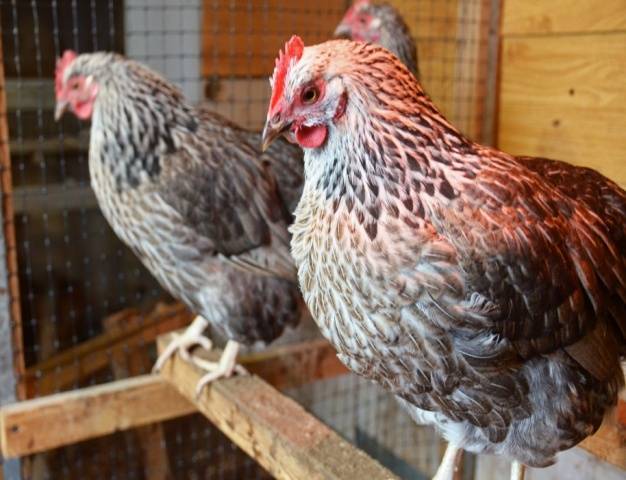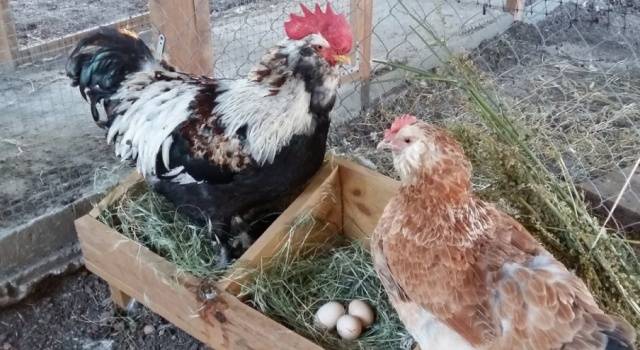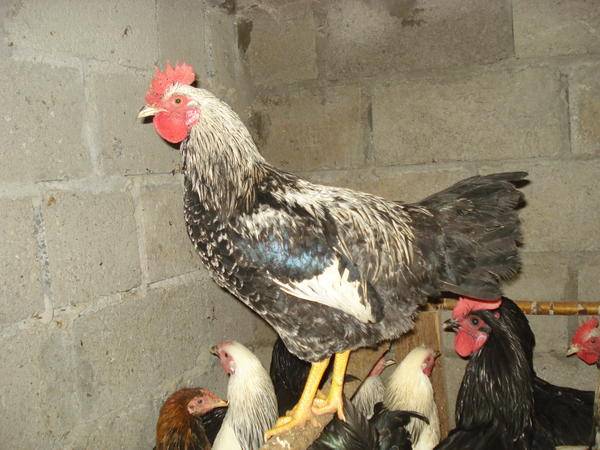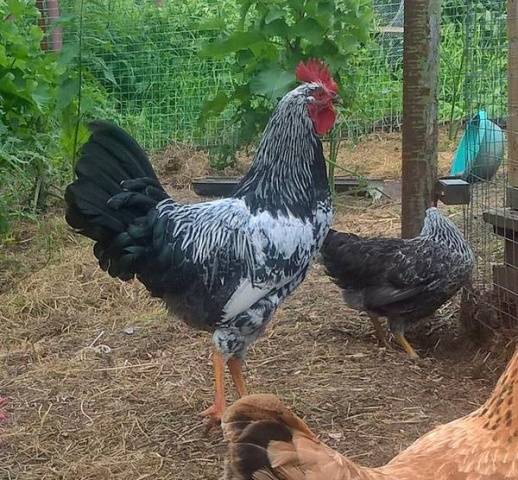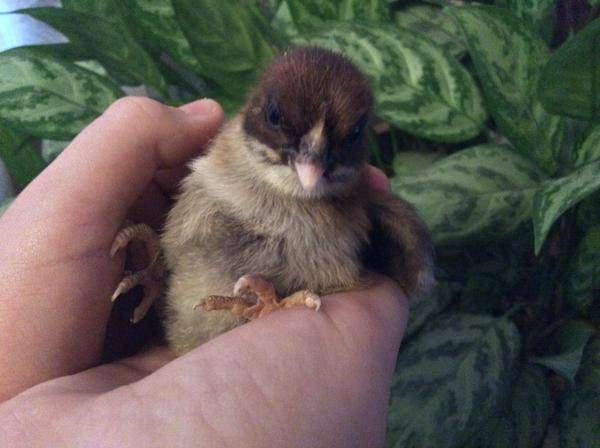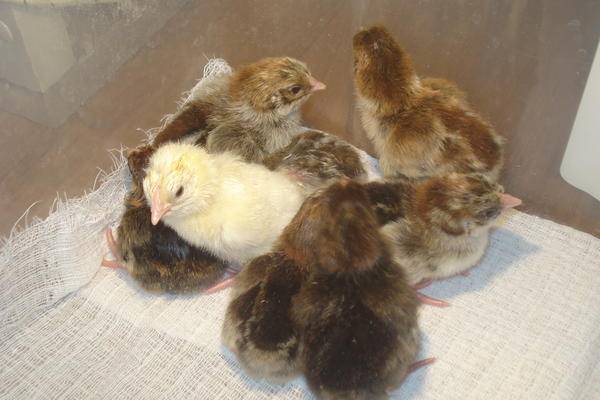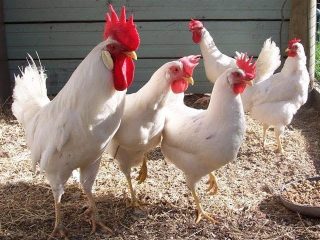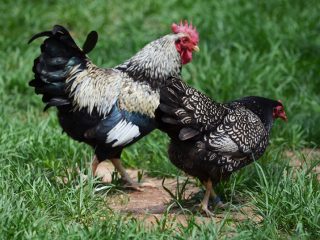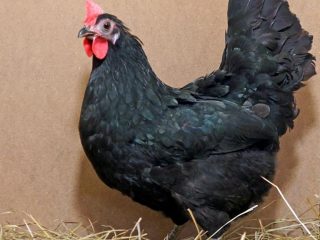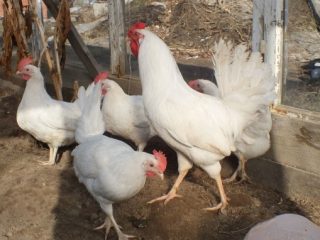Content
One of the almost forgotten Soviet breeds, bred in the southern region of the USSR, the Kotlyarevskaya breed of chickens, is becoming more and more of interest to the owners of private farmsteads. The breed was bred in the Caucasus, at the Kotlyarevsky breeding plant, which gave its name to the new chickens in the meat and egg direction.
Kotlyarevsky chickens were bred, crossing five breeds:
- bare-neck;
- New Hampshire;
- Zagorsk salmon;
- Russian white;
- cuckoo plymouth rock.
Thanks to this cocktail, the color of the kotlyarevny chickens is very variable. In the offspring, color splitting is still going on.
Further selection with a new breed was carried out in the direction of increasing egg productivity. Today, according to the owners, Kotlyarevsky chickens are more of an egg type than meat.
Description of Kotlyarevsky chickens with photos
The general impression of the bird: a slender graceful body of the egg direction. The head is small, with a single leaf-shaped crest. The teeth should stand out well on the ridge, especially the medium ones. The face, earrings and lobes are red. Combined lobes are allowed: white with red. The eyes are orange-red. The neck is of medium length, set high, with a graceful curve at the top. The mane of a rooster is medium in size.
The body is firmly knocked down. Set horizontally. The back and loin are long, straight, wide. The shoulders are wide, the wings are tightly pressed to the body. The tail of the rooster is set horizontally, triangular in shape. The braids are relatively short. The chest is wide, arched and well filled. Legs are of medium length, with non-feathered metatarsals. The color of the metatarsus is yellow.
Any colors typical for the original breeds are allowed: salmon, cuckoo, silver, fawn, partridge and others.
Perhaps this culling is due to the fact that the gene responsible for the brown color of the feathers is linked to the gene responsible for the production of testosterone in males. There is a known case when a "brown" rooster attacked everything that moves. At the same time, his brother from the same herd, but without brown feathers, behaved calmly.
In this case, the genes responsible for the color are always linked to the genes that provoke diseases.
Correct cock color. And also one of the options for the correct color for chickens of the Kotlyarev breed in the photo below.
Productive characteristics
Description of Kotlyarevskaya chicken breeds indicates that these are early maturing and rather heavy birds. The weight of a half-year-old Kotlyarev rooster reached 3 kg. An adult rooster got up to 3.8 kg. The chicken weighed 2.5 to 3 kg. But it was the old meat and egg type. Perhaps it can still be found in some farmsteads even now.
Today, the priorities have shifted towards egg production and the weight of the Kotlyarev chickens has decreased. The modern description of the Kotlyarevskaya chicken indicates that the weight of the laying hen is up to 2300 g, the rooster is up to 2800 g.
But egg productivity has increased significantly. Up to 240 eggs can be obtained from the Kotlyarevskaya laying hen today. During molting, the Kotlyarev chickens do not stop laying, although their productivity is somewhat reduced.
In terms of the size of the laid eggs, the Kotlyarevskaya chicken is not inferior to industrial egg crosses.Eggs of an adult hen reach 65 g. In the youngest, the very first testicle can weigh about 50 g.
Pros of the breed
Like any Soviet chicken hardened by socialism, Kotlyarevskaya is unpretentious in terms of keeping and feeding. It can be carried regardless of weather conditions. Differs in a long productive period (5 years), early meat maturity. And undemanding to feed.
Kotlyarevsky chickens can consume any feed, but for high productivity they will have to be fed with good compound feed, which allows the chicken's body to get everything it needs to lay eggs.
Cons of the breed
Chickens fly well and can visit neighbors in search of something tasty. The visit is unlikely to please the neighbors.
To this day, the breed has seen splitting in the offspring. Because of this, the productivity of young birds, even from the same clutch, may differ.
The main disadvantage of the breed is its small number. The Kotlyarevskaya breed of chickens has not become widespread and it is very difficult to get it today. To the extent that the inhabitants of the Leningrad region complain about the impossibility of updating the herd. Although the rest of the reviews about the Kotlyarevskaya breed of chickens they have only positive.
Conditions of detention
Although these chickens are very unpretentious, it is necessary to provide the minimum conditions for their comfortable existence. The chicken coop may be unheated, especially in the southern region. The main thing is that the birds have a roof over their heads from the rain and that there is enough food in the feeder to generate energy that warms them.
Straw, sawdust or peat should be laid on the floor. For the winter, a thick bedding is made, which will rot below and generate heat. In this case, peat is preferable. The top layer must be tidied up and a fresh litter must be added.
For spending the night, Kotlyarev chickens need to equip perches. The ideal option would be just thick branches from the trees, as in the photo above. Somewhat worse, but acceptable - perches made of boards not high above the floor.
Nest boxes for laying eggs shall be equipped at the rate of not less than 1 box for 5 layers. If there is an opportunity to do more, it is better to do more. Straw or hay is put in boxes. Leaving them completely empty is undesirable. This is uncomfortable for the chickens and can cause the chicken to crush the eggs.
To obtain eggs in winter, chickens need a long day of light. For maximum egg production, they need at least 12 hours.
To protect birds from skin parasites when keeping livestock in winter, sand-ash baths should be placed in the chicken coop, not forgetting to change their contents as often as possible.
Diet for Kotlyarevsky chickens
The breed has an interesting feature: it can get by with almost one pasture. But then you should not expect large eggs from her in large quantities. When fully fed, this hen can lay eggs up to 70 g in weight. And very quickly responds to the improvement of nutrition, immediately thanks to the owner.
All the feed they eat is spent on increasing the size of the egg. Males from abundant feeding can get fat. Therefore, if a rooster is planned for slaughter in the future and you want to get a fat carcass, it is "planted" on grain feed.
Laying hens are provided not only with grain mixture, but also with herbs, vegetables, meat and bone meal, vitamin and mineral premixes. With a quality balanced diet, the hens get the most out of them.
Breeding of the Kotlyarevskaya breed of chickens
Puberty in Kotlyarev pullets usually occurs at 6 months. When fed with industrial compound feeds containing an increased amount of vitamins, ripening can occur at 4 months. However, such early production will later adversely affect the laying hen and the quality of her offspring. If the chicks are planned to be left for self-repair, then the puberty of the future laying hen should not be accelerated.
Families are formed at the rate of 7 - 12 hens per rooster. Fertility in Kotlyarevsky chickens is very high. The safety of hatched chicks reaches 95%.
For breeding, it is preferable to use an incubator. The degree of development of the brooding instinct in the Kotlyarev breed is questionable. Considering further selection towards egg production, we can conclude that this instinct will fade away.
Later, the young grows into "pestles". The safety of young birds is 85%.
Reviews from the owners of Kotlyarevsky chickens
Conclusion
The Kotlyarevskaya breed of chickens is perfect for those private traders who can buy it. So far, guarantees for the purchase of purebred Kotlyarev chickens can only be given by the gene pool, where these chickens are kept for the sake of genetic diversity and as a reserve for breeding other breeds.
